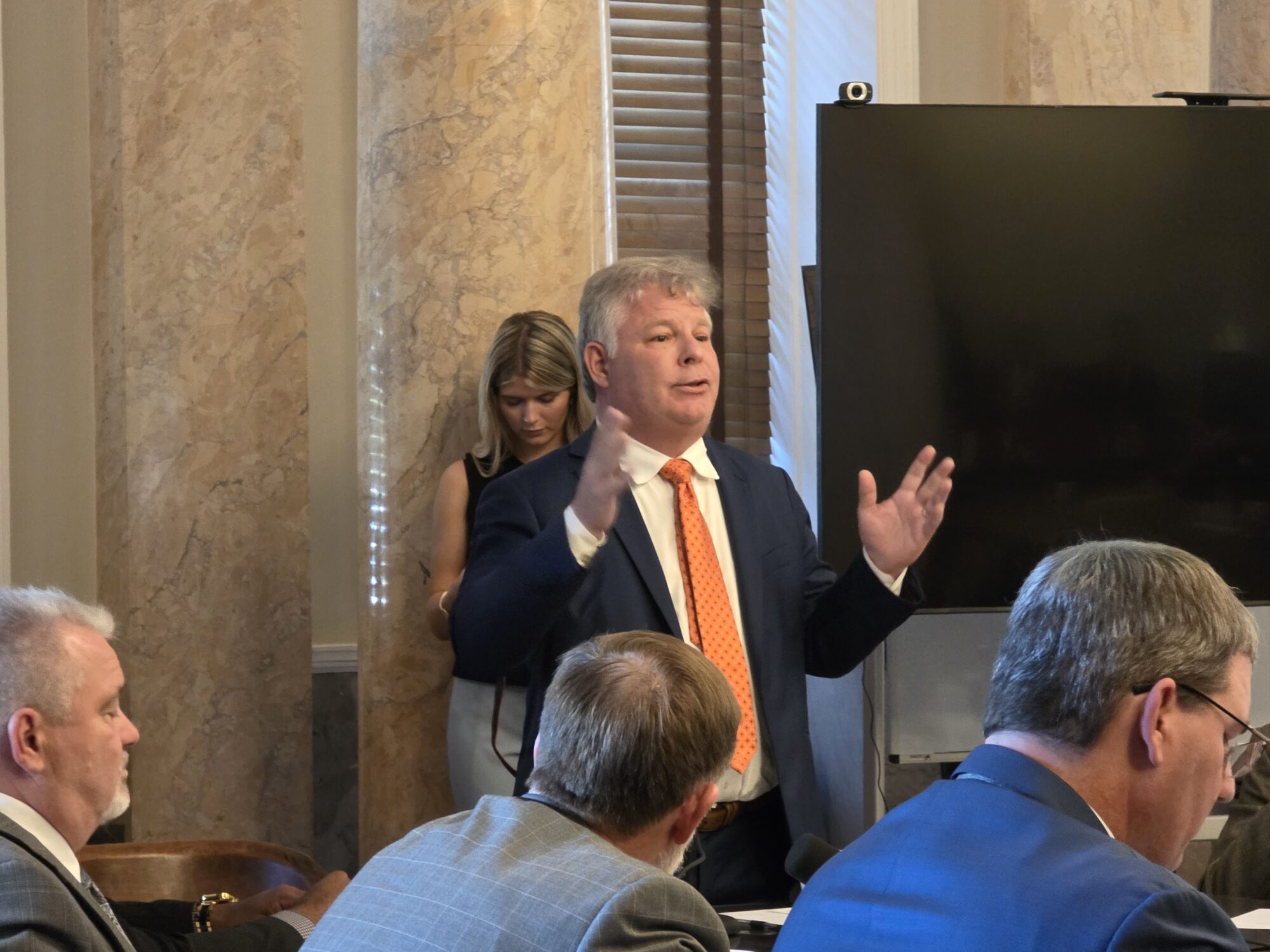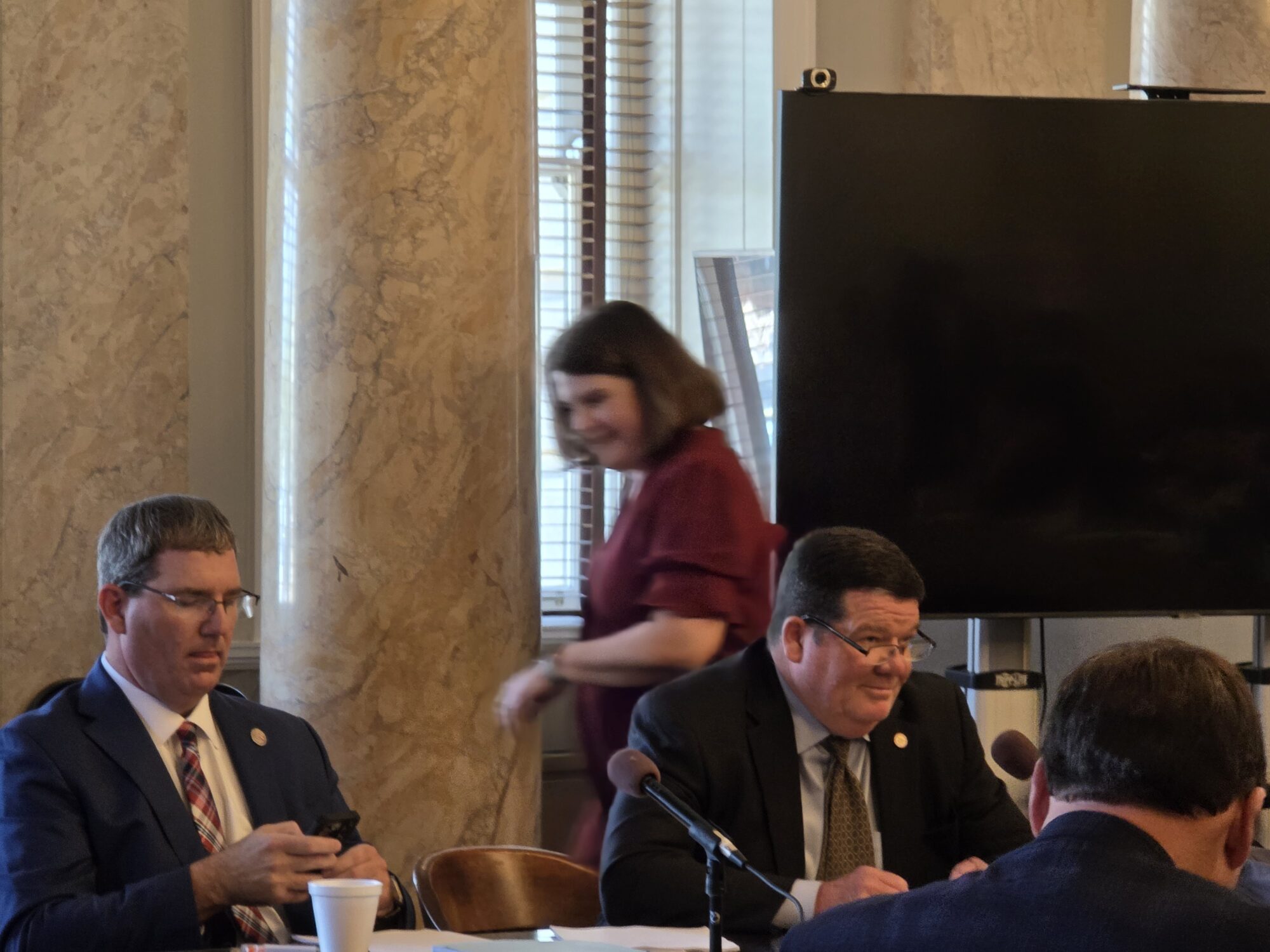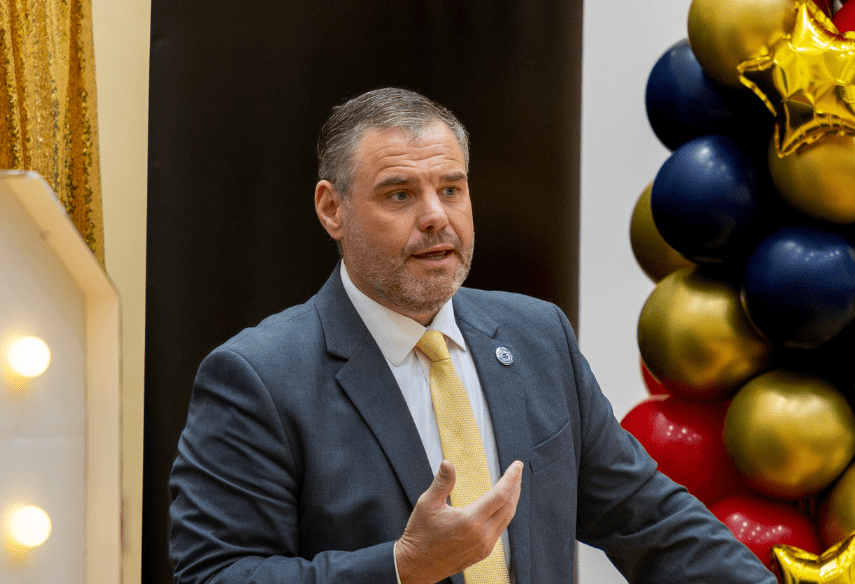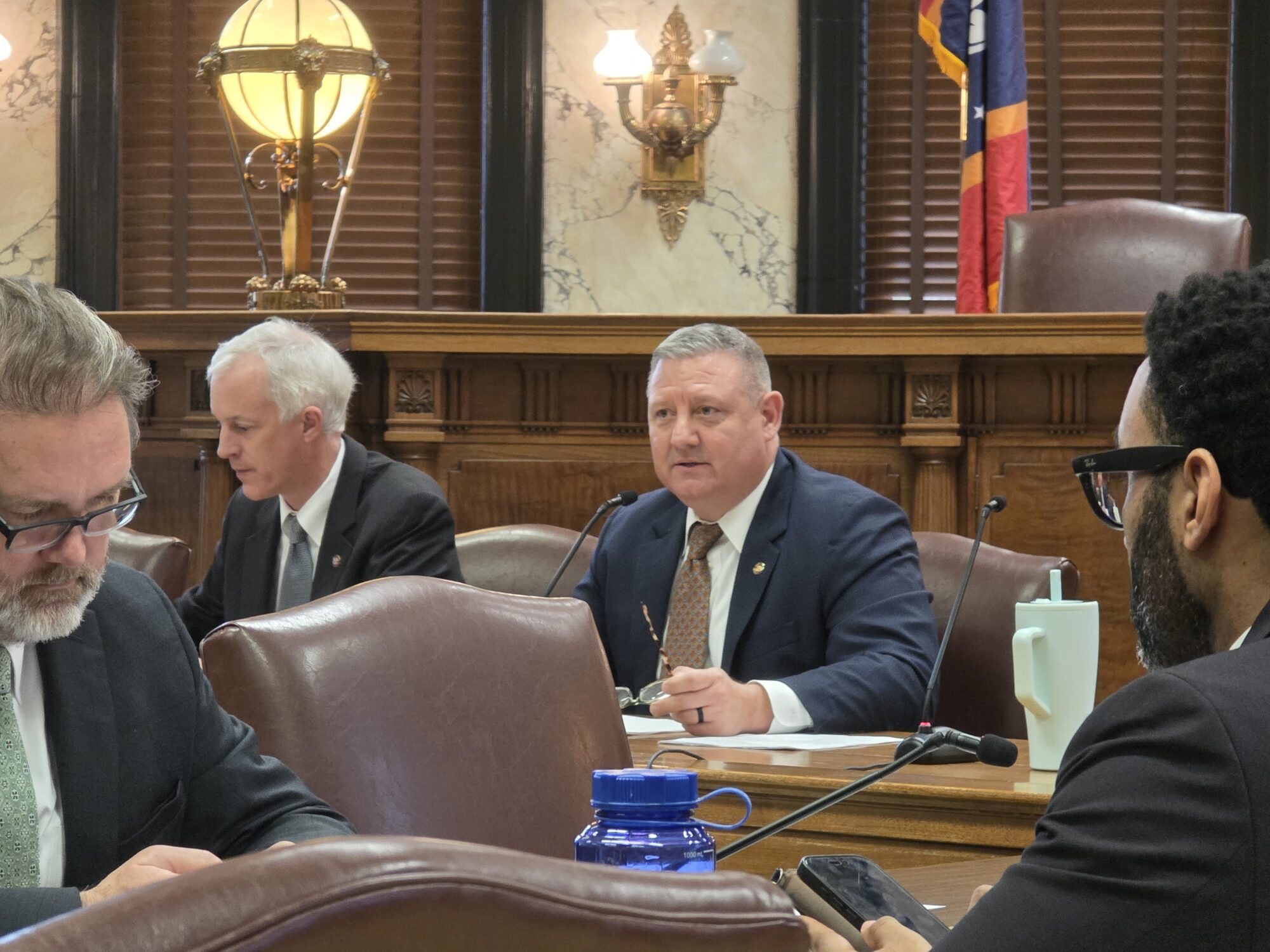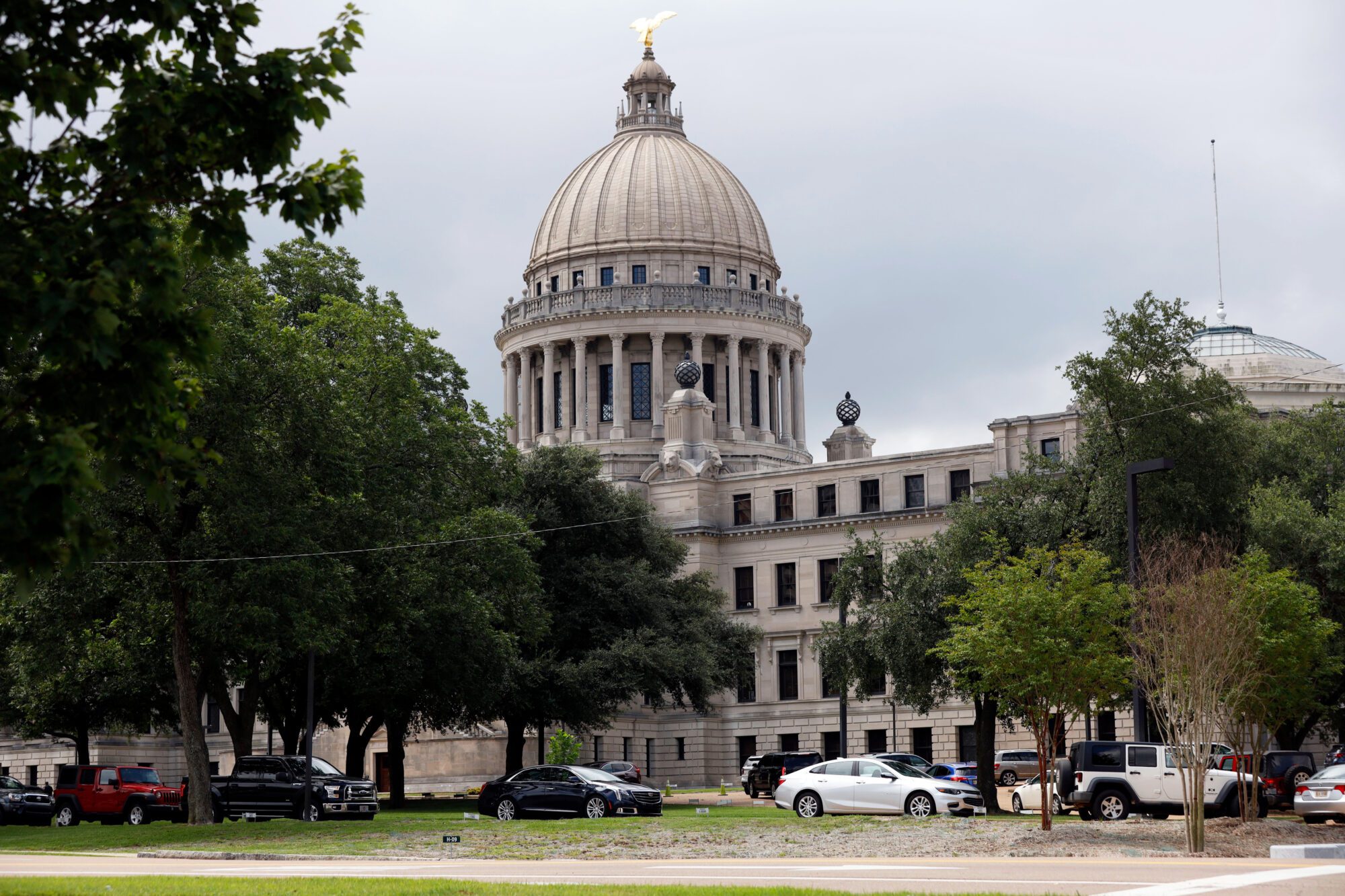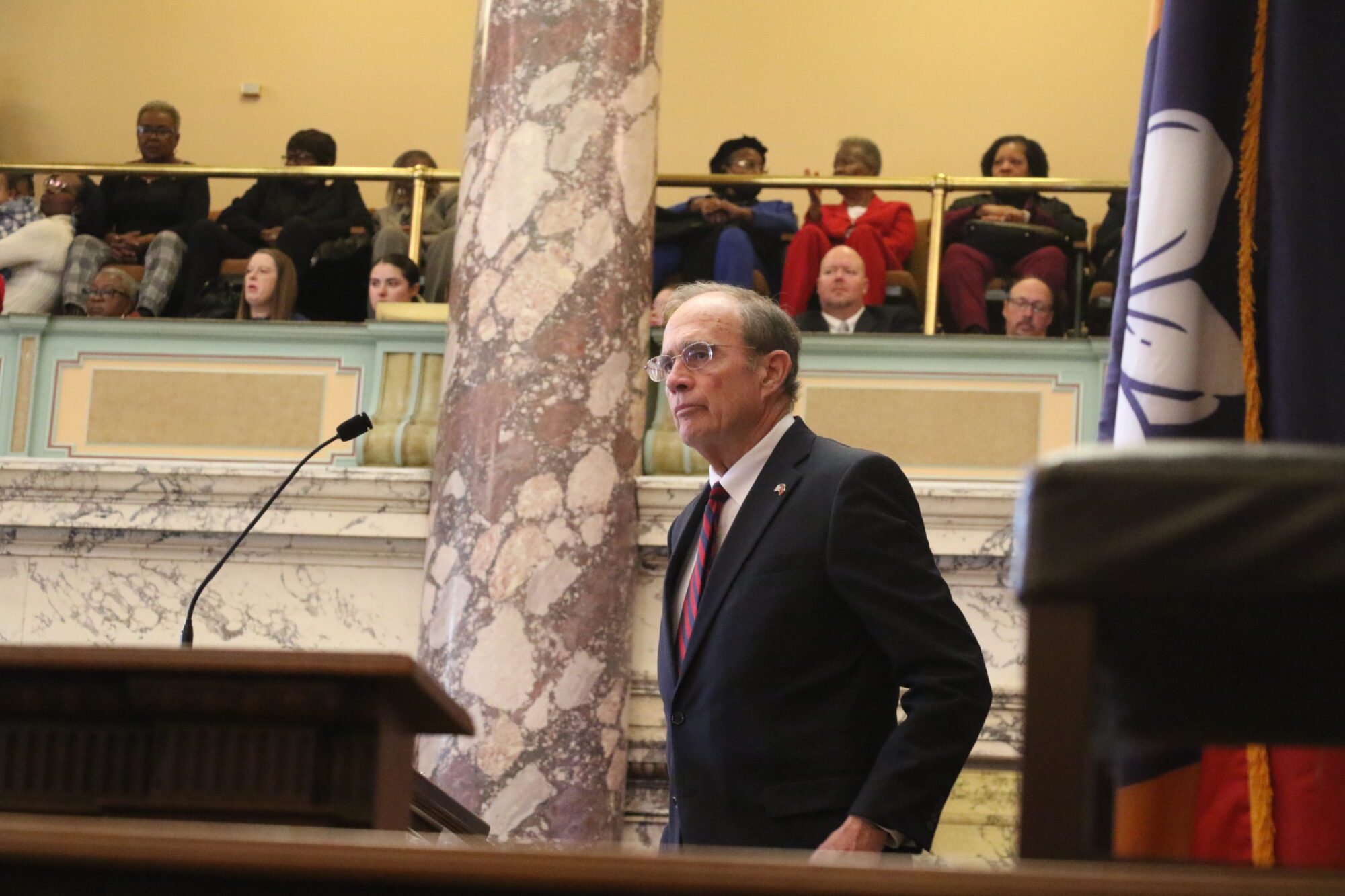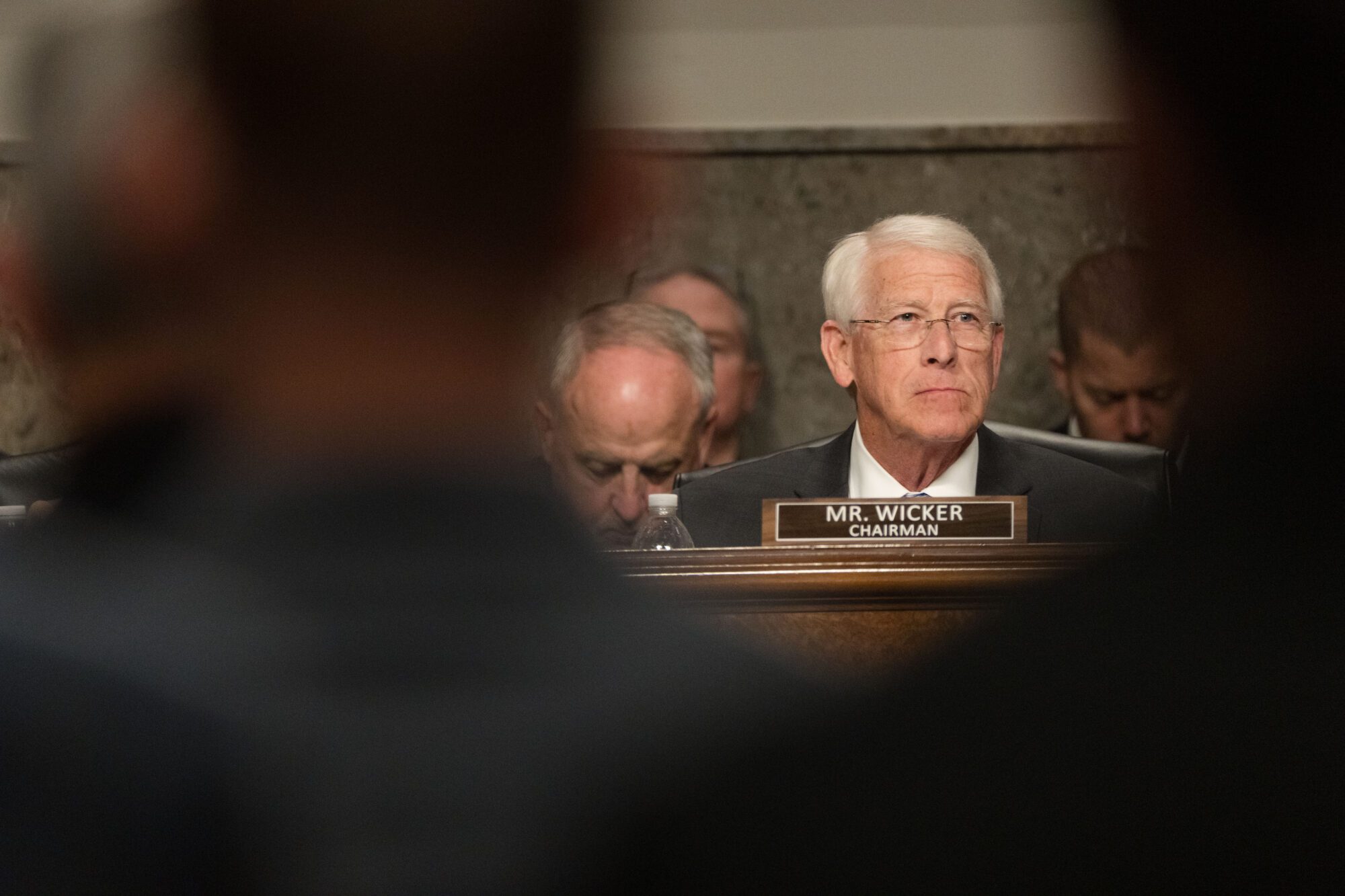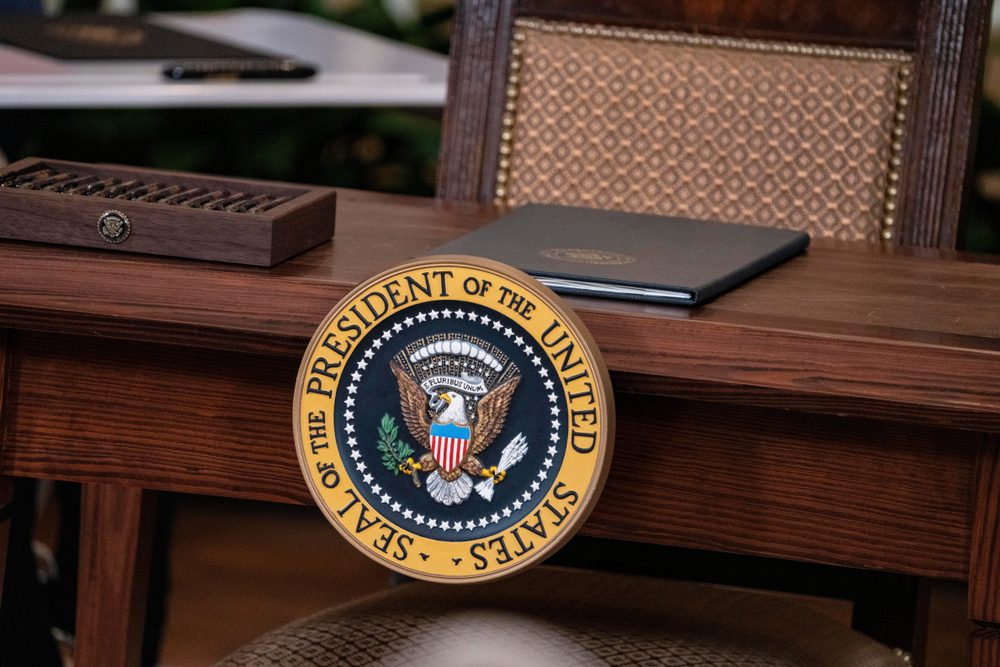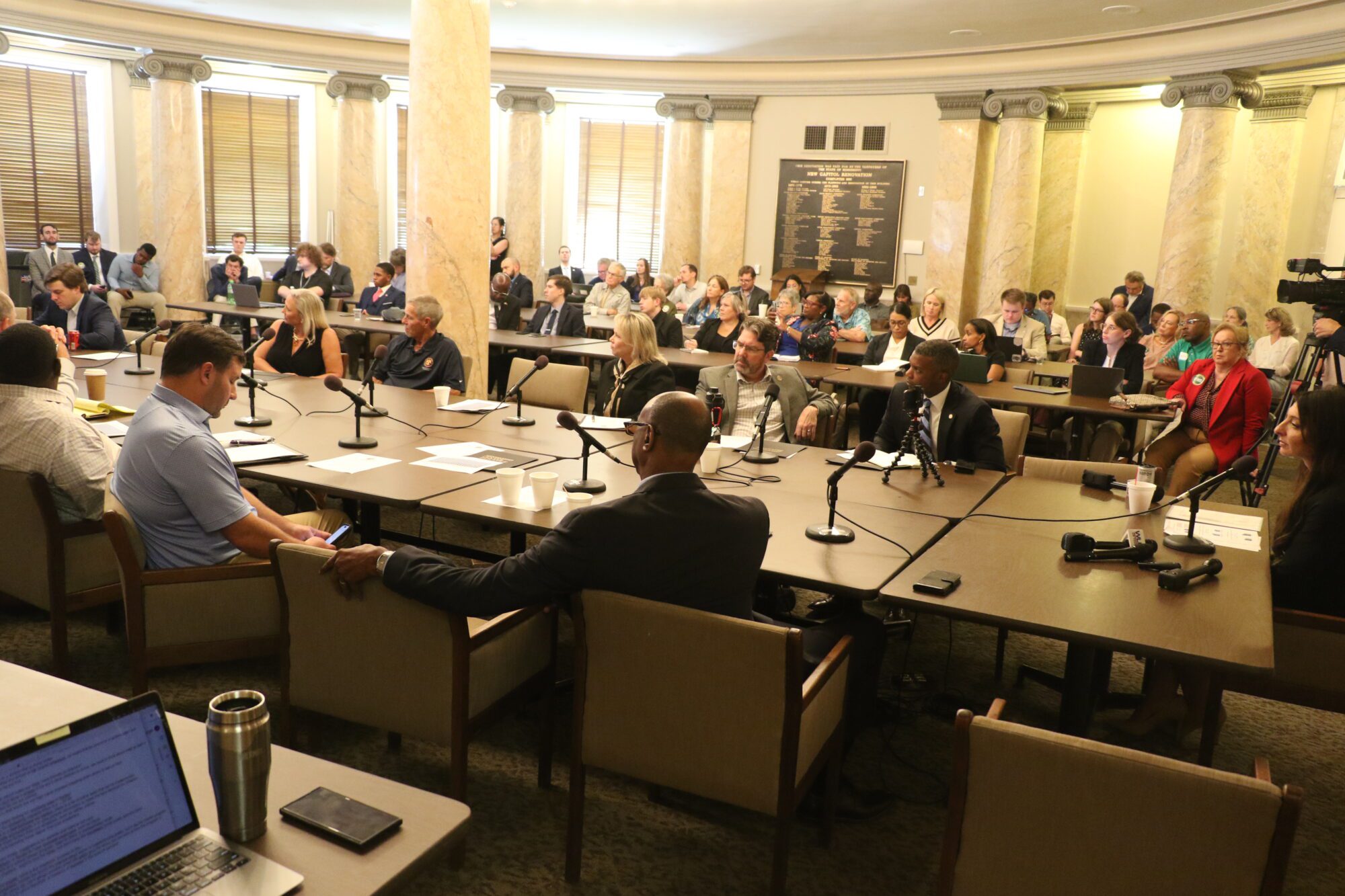
House Education Freedom Select Committee (Photo by Jeremy Pittari, Magnolia Tribune)
- Proponents believe more access to better education options has positive effects for all, while opponents fear school closures and loss of state funding.
In preparation for the 2026 legislative session, the Mississippi House Education Freedom Select Committee heard arguments for and against expanding school choice in the Magnolia State on Thursday.
The hearing at the Capitol was part of Speaker Jason White’s commitment to listen to the public and education professionals as his chamber considers legislation come January.
Those who spoke in opposition of implementing more school choice – Director of Education Equity at the Mississippi Center for Justice Dr. Kim Wiley and Biloxi School District Superintendent Marcus Boudreaux – addressed lawmakers first.
One of Wiley’s concerns should the state decide on a universal school choice model is the possibility of all of the nearly 77,000 children who are either homeschooled or currently enrolled in a private school becoming eligible for state funding. If that were to occur, it would mean more expense for the state in a time when the Legislature is implementing cuts to income tax and sales tax on groceries, she cautioned.
Wiley used Arizona’s program as an example of a failed attempt at school choice. In 2022, the Arizona program was estimated to cost the state an additional $164 million. A year later, those expenses were found to be $376 million. By 2024, Arizona had spent $716 million on its Education Savings Account program, and that amount is expected to reach $1 billion in 2026.
“So, they were not prepared for how much this was costing their state,” Wiley described.
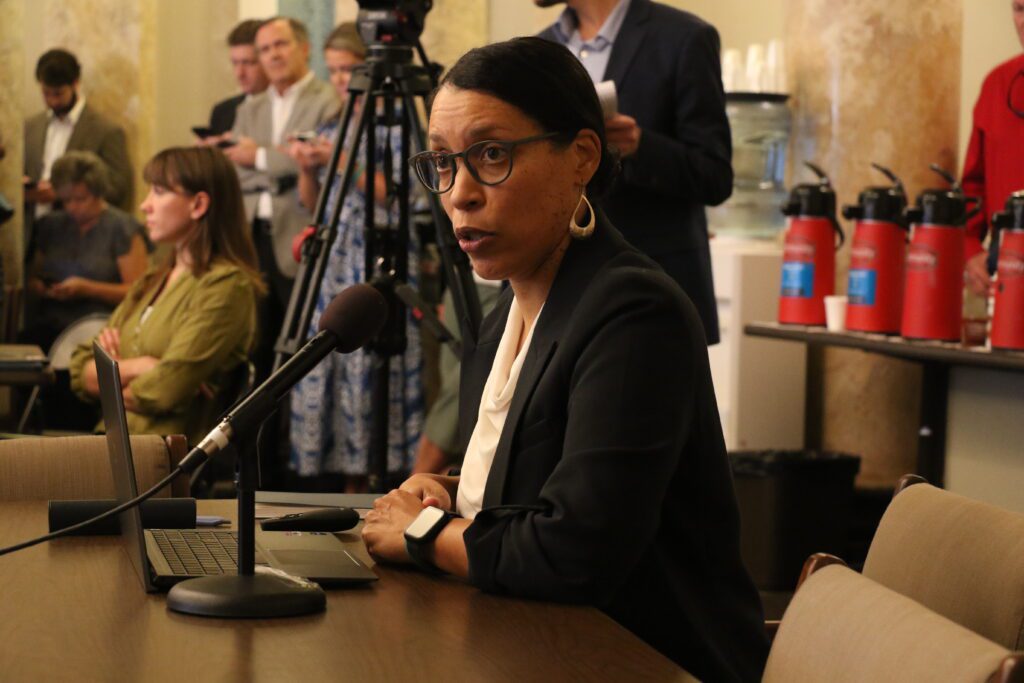
Among the reasons cited as to why the Arizona program met with such large expense increases were the lack of a cap on the number of ESA accounts and a lack of income limits. Without income limits, there was also a lack of assurance the aid would go to those in most need. As a result, Wiley said the largest percentage of participants in the program were the state’s most wealthy, or those making more than $114,000 annually.
“School choice benefits the wealthy, families who can already afford to send their children to private school. They don’t need support from an ESA program,” Wiley said.
Mississippi currently has an ESA program, but the model has caps and is limited to parents of children with special needs.
Another negative result Wiley shared was the increase in private school tuition when school choice becomes a more robust option. She said other states with uncapped ESAs saw private school tuition increases ranging from 5 to 20 percent. In some states, she said it was as much as 40 percent.
“So, private school’s response to this is going to be to increase their tuition because they don’t want school choice,” Wiley added. “They are private for a reason because they can select who comes to their school.”
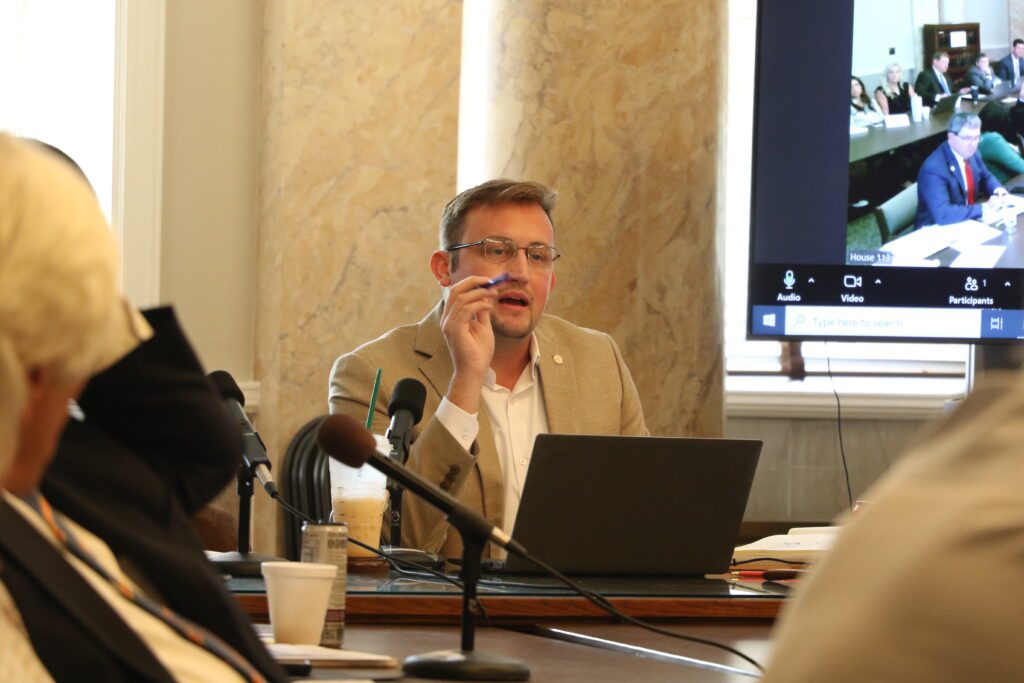
State Representative Jansen Owen (R), co-chair of the Select Committee, clarified that Mississippi does not intend to follow in the footsteps of the Arizona program.
“We’re not doing what Arizona did, so let’s get that out of the way,” Owen stated.
With 22 states currently allowing school choice, Wiley was asked by State Rep. Trey Lamar (R) which are the most successful. She pointed to models in North Carolina and Iowa where there are voucher caps and income limits.
Boudreaux, Biloxi’s Superintendent, also spoke in opposition of expanded school choice. He has more than two decades of experience with the Coast district, and asked why, in spite of the education gains made in the state in recent years, school choice has become a hot topic.
“We have changed the face of public [education] so much so that we’ve become the model for what public education should look like,” Boudreaux said of what has been referred to as the “Mississippi Miracle.”
His biggest issue with school choice is the lack of accountability in private schools. Private schools do not have to abide by public meetings laws, undergo government mandated audits, or follow curriculum standards, he noted.
“I’m just a firm believer that we should keep those public tax dollars in systems that are accountable to taxpayers,” Boudreaux added.
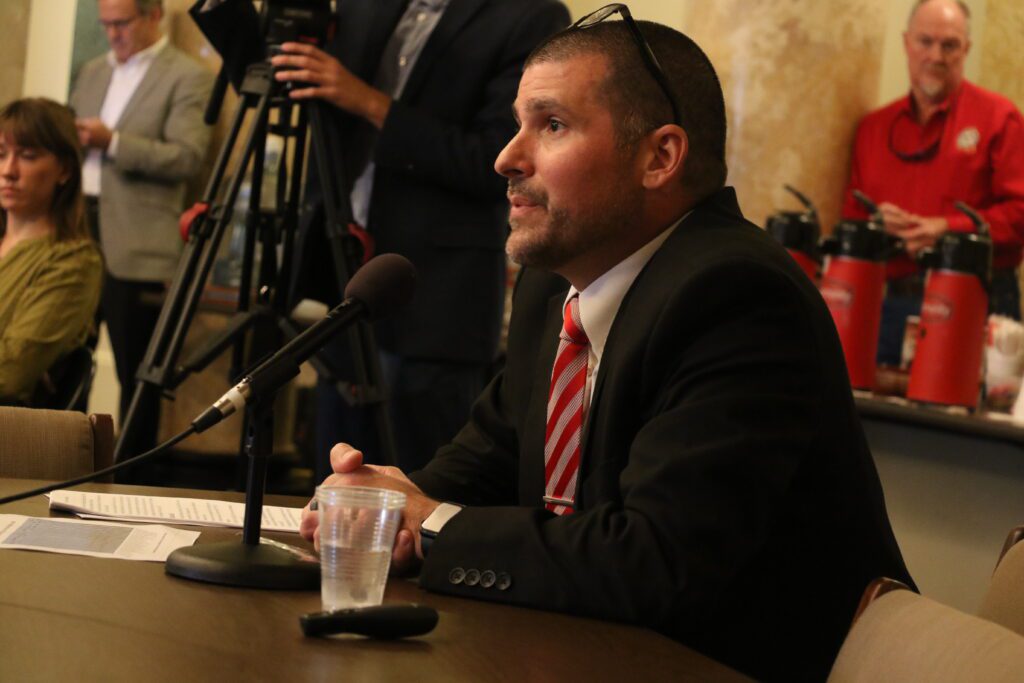
In Florida, where a robust school choice program has been in practice for more than 25 years, public schools are facing funding losses due to student population shifts to private schools, Boudreaux stated, forcing public school administrators to consider funding cuts to extracurricular programs like athletics and arts.
Boudreaux speculated that in Mississippi, where athletic programs are highly valued, school choice could lead to recruiting efforts for the best athletes.
The Biloxi Superintendent went on to note that local funding plays a big part in any school district’s budget, typically accounting for a majority of their general fund. He said any reduction in state funding would lead districts to consider millage increases on the local level. However, many districts are already maxed at the current cap of 55 mills.
Another factor Boudreaux believes the Legislature needs to consider is the ongoing teacher shortage. His and other districts across the state are struggling to attract new teachers and specialists. For instance, over the past five years his Biloxi district has been unable to find a school psychologist or other professionals.
“We can’t find speech pathologists anymore. They used to be a dime a dozen,” he added.
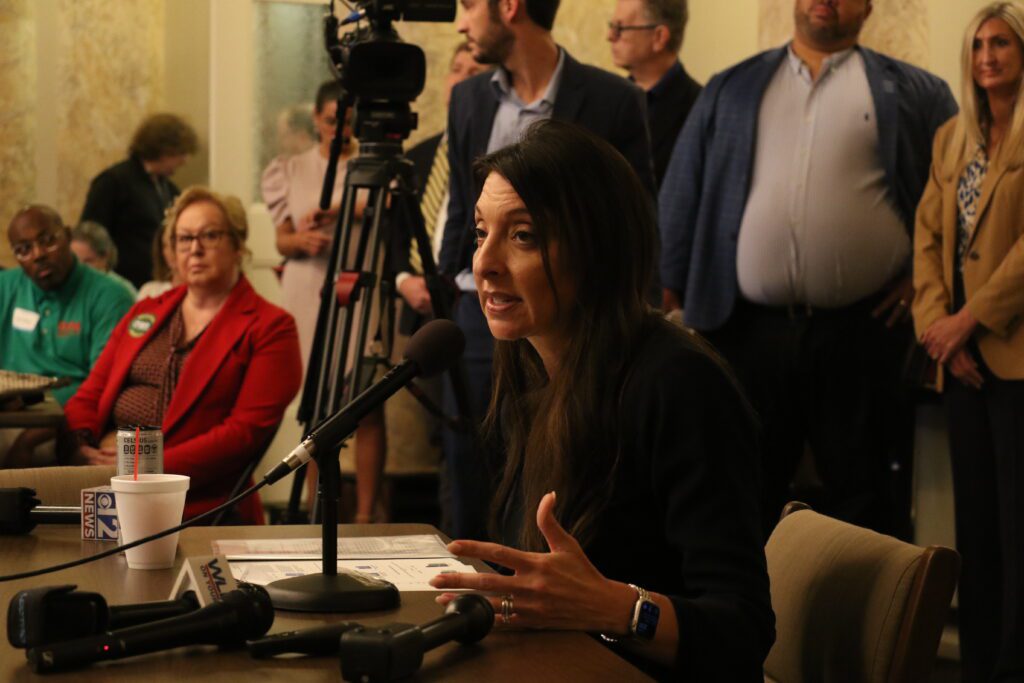
Lawmakers also heard from two professionals who spoke about the benefits of school choice – Chair of America First Policy Institute’s Center for Education Opportunity Erika Donalds, and Distinguished Professor of Education Policy at the University of Arkansas Dr. Patrick Wolf.
Donalds said she became a proponent of school choice due to a negative experience with public schools and its governing board. The failures of public school forced her to enroll one of her three sons in private school, where he flourished. Her attempts to address those and other issues with the school district’s board were met with contempt.
She then ran against an incumbent school board member and won. Yet, her four years of service on the board showed her that changing the system from the inside is difficult. In response, she worked to open a charter school. In its first year, all 400 spots were filled and there was a waiting list 400 long. America First now operates six charter schools in Florida.
Currently, private schools in Mississippi are few and far between. During Wiley’s presentation earlier in the day, she showed the committee a map depicting private school sparsity in Mississippi. Most private schools are located in highly populated areas, which leaves several counties without a private school option. Donalds countered that fact markets respond to a need. She said should the Legislature expand school choice for Mississippi’s parents, private, hybrid and charter schools will follow.
“We need to put these decisions in the hands of the parents who know their children the best and love them the most,” Donalds added.
However, Donalds said the state must also adjust its restrictions on charter schools if numbers are to grow. Current state law only allows for charter schools to be established in districts that are rated a C or below. Assessment scores released by the Mississippi Department of Education this week show more than 80 percent of schools and districts rated a C or higher for the 2024-2025 school year.
According to Donalds that progress would only continue since she has seen school choice benefit public education by creating competition. Schools that were once failing were forced to replace their leadership and subsequently improve their performance. When a school does not make necessary changes, Donalds said parents should have the option to put their children in better performing schools.
“I personally think that schools that parents don’t want should close,” Donalds noted.
While the academic performance of schools is of concern to parents, Donalds said there are other aspects just as important, namely the safety of the children and the values taught in classrooms. She said parents factor in values and safety just as highly as academics.
In response to the argument made claiming that school choice would result in private school tuition increases, Donalds said newly formed private schools will want to be financially competitive and set tuition at the state’s per pupil spending rate to drive enrollment.
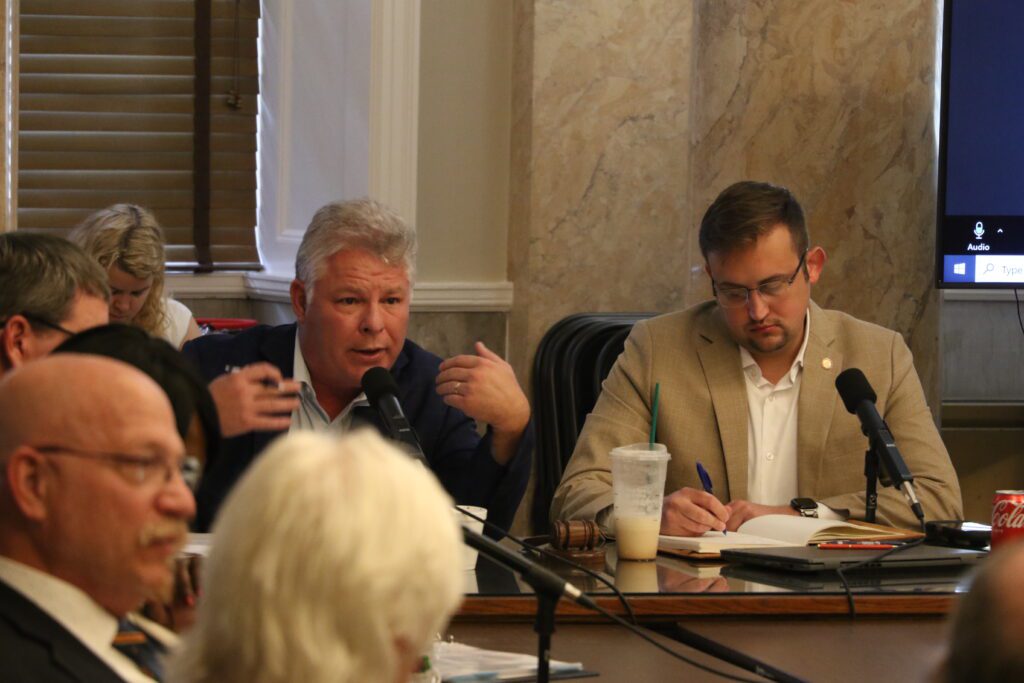
State Rep. Rob Roberson (R), chairman of the House Select Committee, asked if, in her experience, school choice has had a negative impact on high-performing schools. Donald said communities typically take pride in their schools, especially those that are successful, thus high performing schools, the ones with resources, are usually unaffected by school choice.
Even though Mississippi has been touted for education gains in recent years, Donalds said more needs to be done to boost the education standard in the state, and every state, because the United States is far behind other developed nations.
“We as a country have to do better. We are so far behind in the innovation of this sector,” Donalds said.
Research has also shown that private school attendance is beneficial for families who can afford or have access to it. Dr. Patrick Wolf presented the committee with data that focused on student outcomes in attainment, civics, crime and mental health and achievement. It also focused on the competitive effects of school choice. Wolf said the findings were only taken from research labeled as “gold standard.”
In a nutshell, Wolf said research shows children who attended private schools had better outcomes in all of the observed areas. They were 23 percent more likely to graduate high school, and up to 19 percent more likely to attend college. Private school students are also more likely to complete their college degree paths, volunteer in their communities, and have a greater knowledge of civics. They are also less likely to participate in criminal activities and more likely to have better physical and mental health outcomes, including lower suicide rates.
In short, most of the studies Wolf reviewed demonstrated mostly positive outcomes, including positive effects to public schools due to the added competition that made them work harder to improve student outcomes.
The House Education Freedom Select Committee will continue to gather information ahead of the start of the 2026 session.
